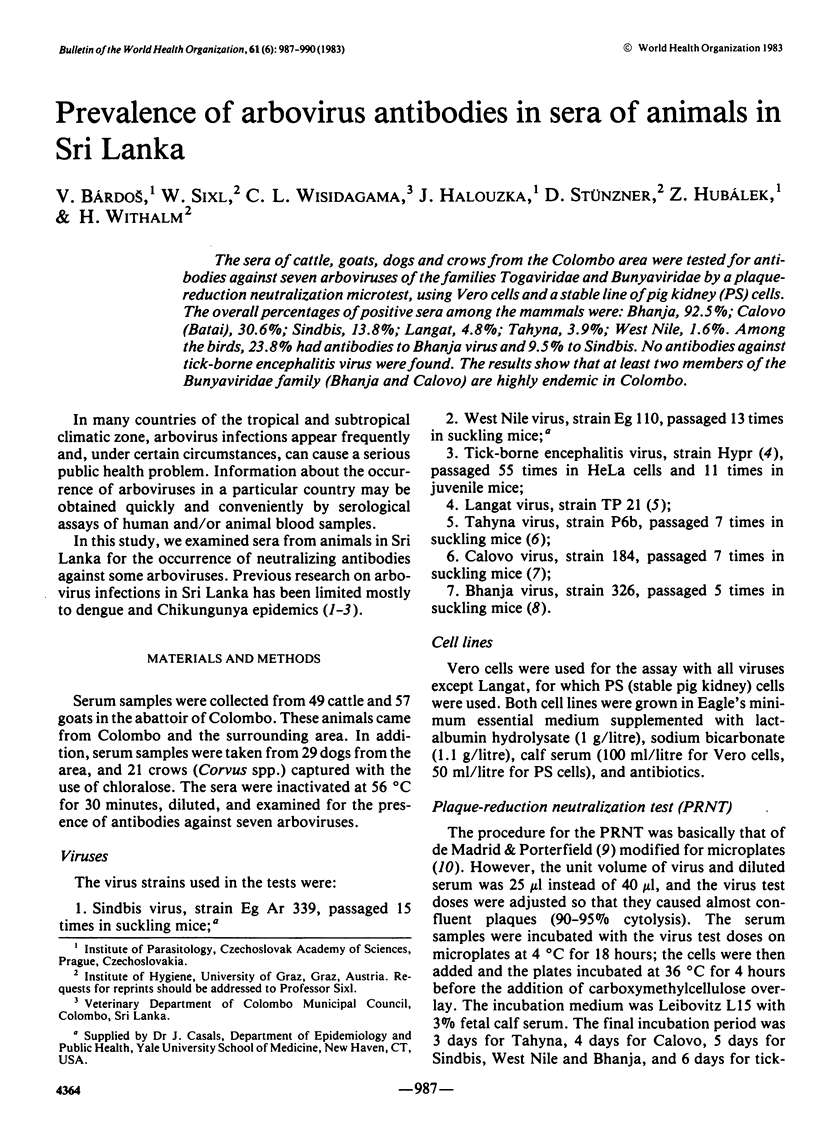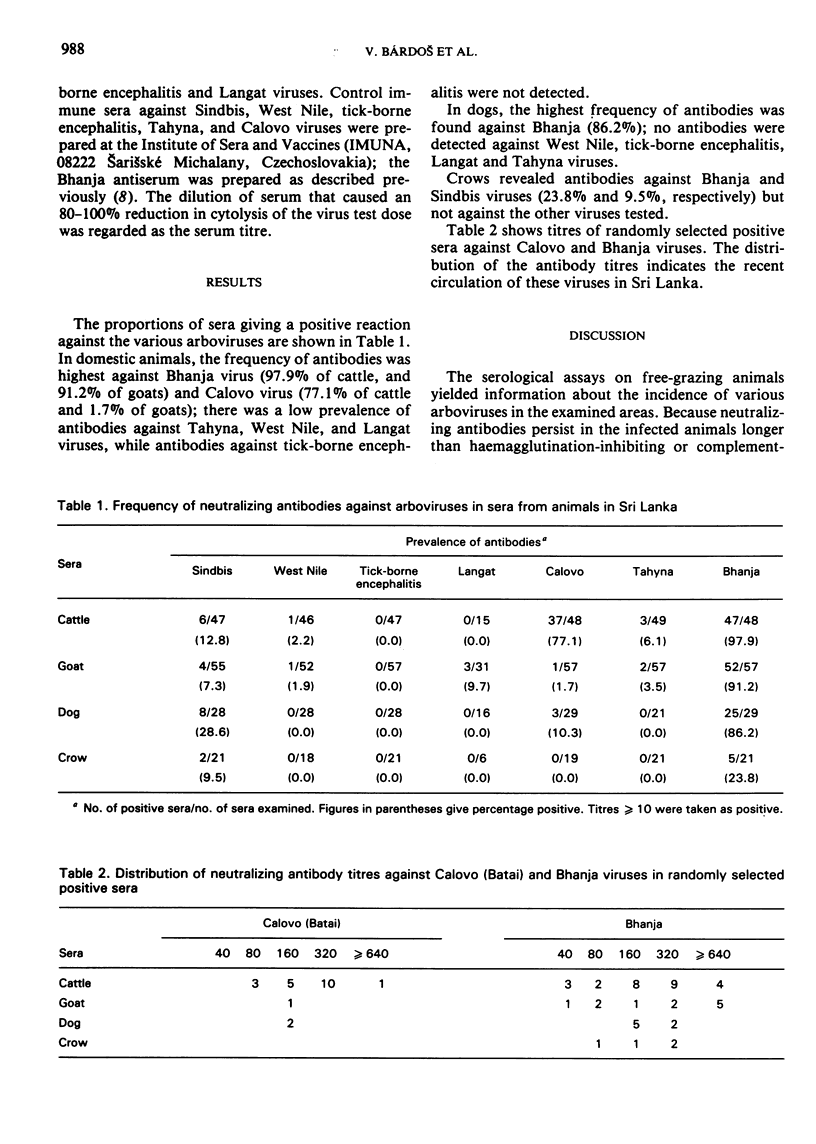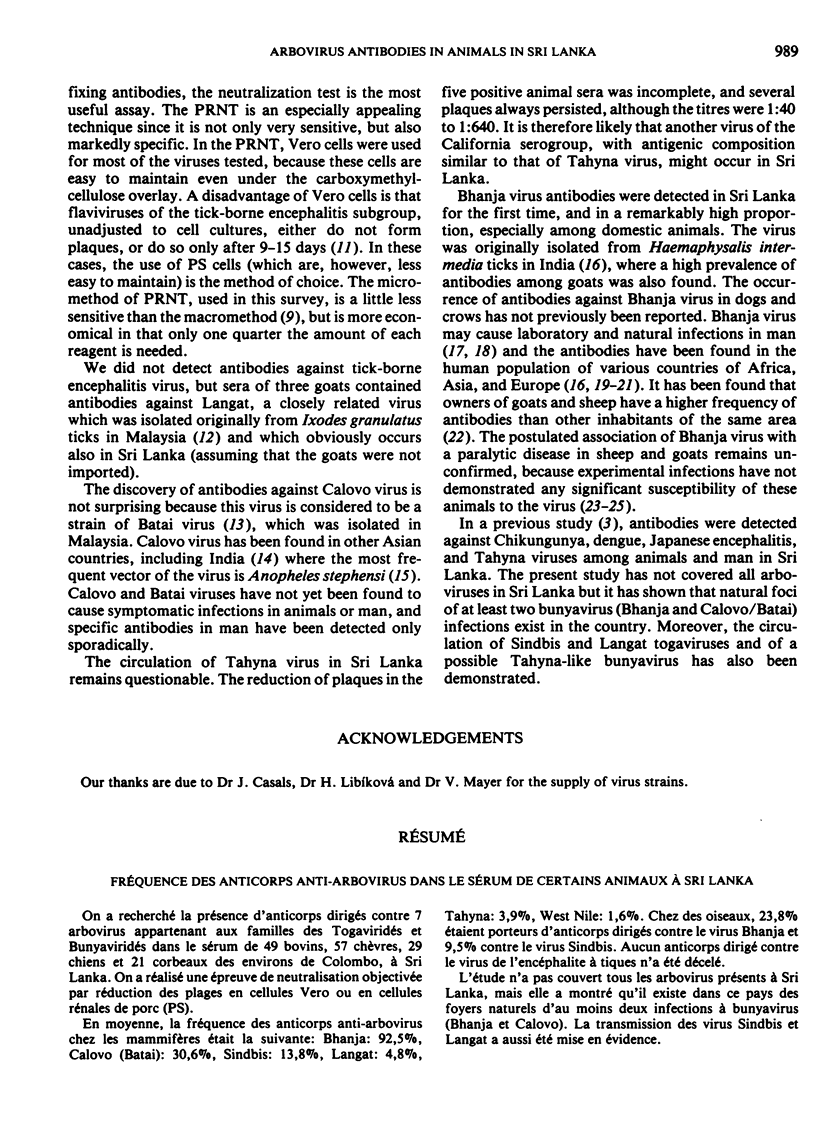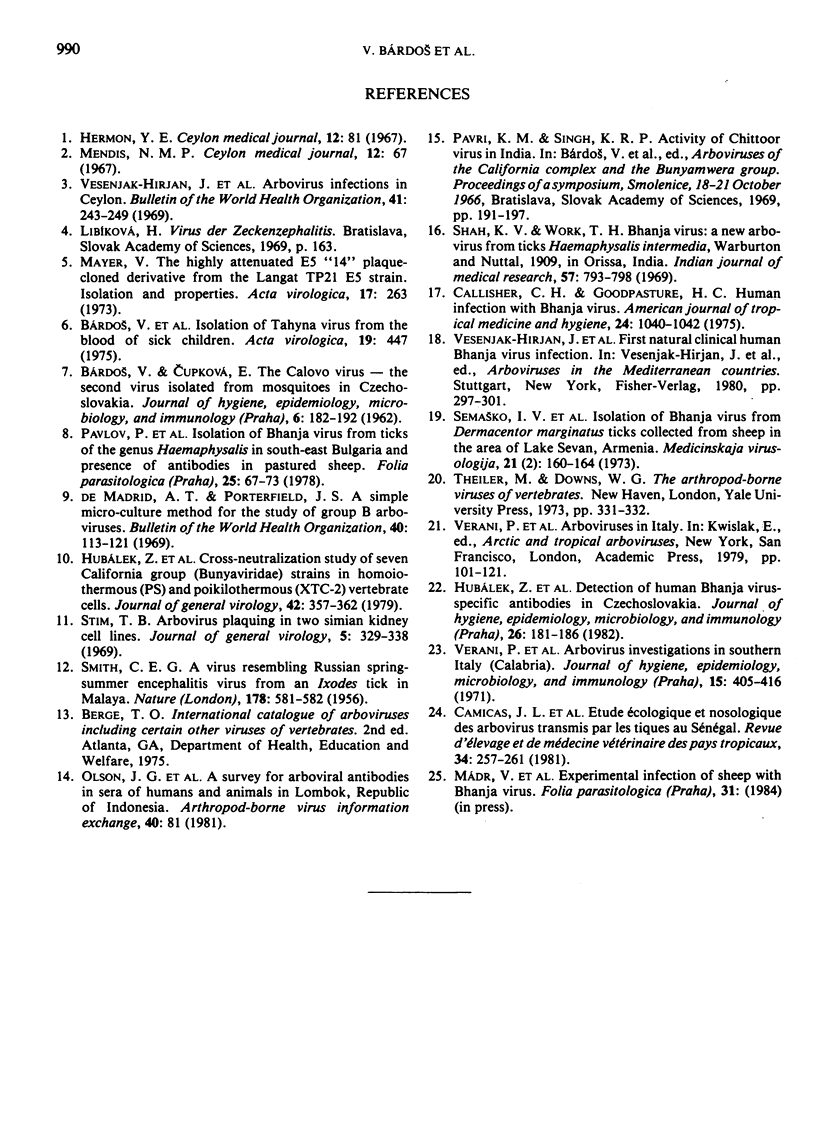Abstract
The sera of cattle, goats, dogs and crows from the Colombo area were tested for antibodies against seven arboviruses of the families Togaviridae and Bunyaviridae by a plaque-reduction neutralization microtest, using Vero cells and a stable line of pig kidney (PS) cells. The overall percentages of positive sera among the mammals were: Bhanja, 92.5%; Calovo (Batai), 30.6%; Sindbis, 13.8%; Langat, 4.8%; Tahyna, 3.9%; West Nile, 1.6%. Among the birds, 23.8% had antibodies to Bhanja virus and 9.5% to Sindbis. No antibodies against tick-borne encephalitis virus were found. The results show that at least two members of the Bunyaviridae family (Bhanja and Calovo) are highly endemic in Colombo.
Full text
PDF



Selected References
These references are in PubMed. This may not be the complete list of references from this article.
- BARDOS V., CUPKOVA E. The Calovo virus--the second virus isolated from mosquitoes in Czechoslovakia. J Hyg Epidemiol Microbiol Immunol. 1962;6:186–192. [PubMed] [Google Scholar]
- Bárdos V., Medek M., Kania V., Hubálek Z. Isolation of Tahyna virus from the blood of sick children. Acta Virol. 1975 Sep;19(5):447–447. [PubMed] [Google Scholar]
- Calisher C. H., Goodpasture H. C. Human infection with Bhanja virus. Am J Trop Med Hyg. 1975 Nov;24(6 Pt 1):1040–1042. doi: 10.4269/ajtmh.1975.24.1040. [DOI] [PubMed] [Google Scholar]
- Camicas J. L., Deubel V., Heme G., Robin Y. Etude écologique et nosologique des arbovirus transmis par les tiques au Sénégal. II. Etude expérimentale du pouvoir pathogène du virus Bhanja pour les petits ruminants domestiques. Rev Elev Med Vet Pays Trop. 1981;34(3):257–261. [PubMed] [Google Scholar]
- De Madrid A. T., Porterfield J. S. A simple micro-culture method for the study of group B arboviruses. Bull World Health Organ. 1969;40(1):113–121. [PMC free article] [PubMed] [Google Scholar]
- Hubálek Z., Bárdos V., Mittermayer T., Kuhn J. Detection of human Bhanja virus-specific antibodies in Czechoslovakia. J Hyg Epidemiol Microbiol Immunol. 1982;26(2):181–186. [PubMed] [Google Scholar]
- Hubálek Z., Chanas A. C., Johnson B. K., Simpson D. I. Cross-neutralization study of seven California group (Bunyaviridae) strains in homoiothermous (PS) and poikilothermous (XTC-2) vertebrate cells. J Gen Virol. 1979 Feb;42(2):357–362. doi: 10.1099/0022-1317-42-2-357. [DOI] [PubMed] [Google Scholar]
- Mayer V. The highly attenuated E5"14" plaque-cloned derivative from the Langat TP21 E5 strain. Isolation and properties. Acta Virol. 1973 May;17(3):263–263. [PubMed] [Google Scholar]
- Pavlov P., Rosický B., Hubálek Z., Daniel M., Bárdos V., Minár J., Juricová Z. Isolation of Bhanja virus from ticks of the genus Haemaphysalis in southeast Bulgaria and presence of antibodies in pastured sheep. Folia Parasitol (Praha) 1978;25(1):67–73. [PubMed] [Google Scholar]
- SMITH C. E. G. A virus resembling Russian spring-summer encephalitis virus from an ixodid tick in Malaya. Nature. 1956 Sep 15;178(4533):581–582. doi: 10.1038/178581a0. [DOI] [PubMed] [Google Scholar]
- Shah K. V., Work T. H. Bhanja virus: a new arbovirus from ticks Haemaphysalis intermedia Warburton and Nuttall, 1909, in Orissa, India. Indian J Med Res. 1969 May;57(5):793–798. [PubMed] [Google Scholar]
- Verani P., Lopes M. C., Balducci M., Serra F., Crivaro G. Arbovirus investigations in southern Italy (Calabria). J Hyg Epidemiol Microbiol Immunol. 1971;15(4):405–416. [PubMed] [Google Scholar]
- Vesenjak-Hirjan J., Hermon Y., Vitarana T. Arbovirus infections in Ceylon. Bull World Health Organ. 1969;41(2):243–249. [PMC free article] [PubMed] [Google Scholar]


